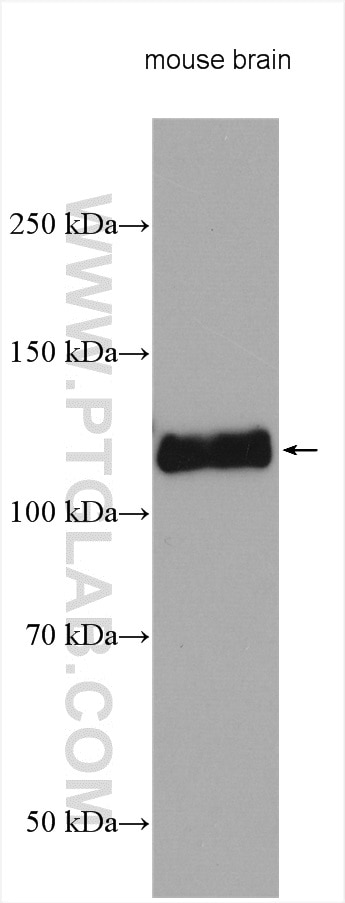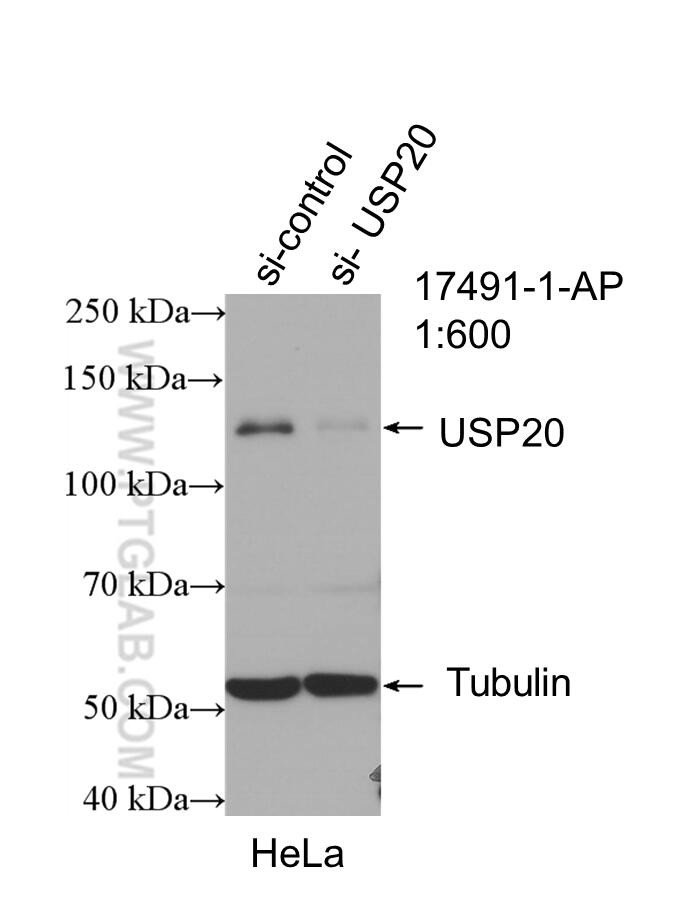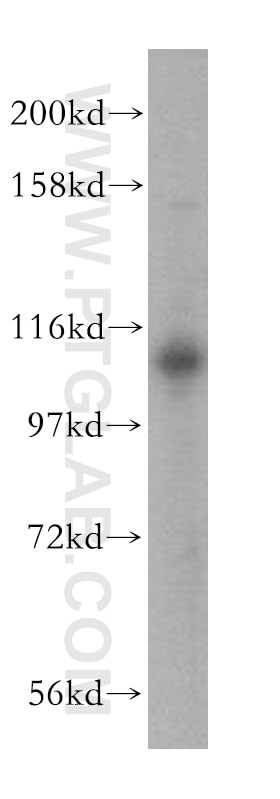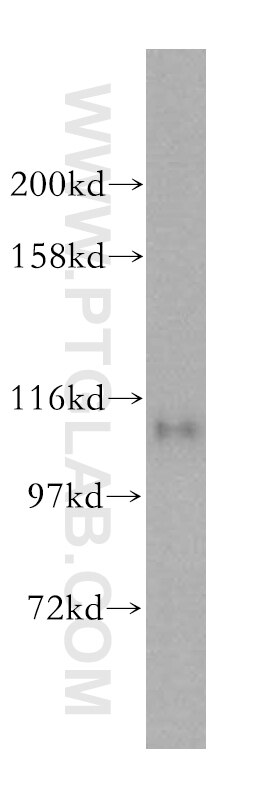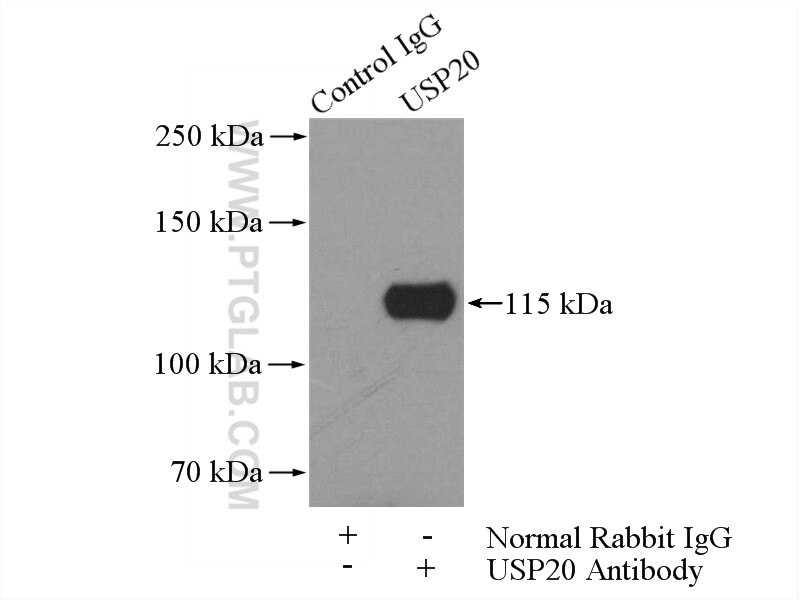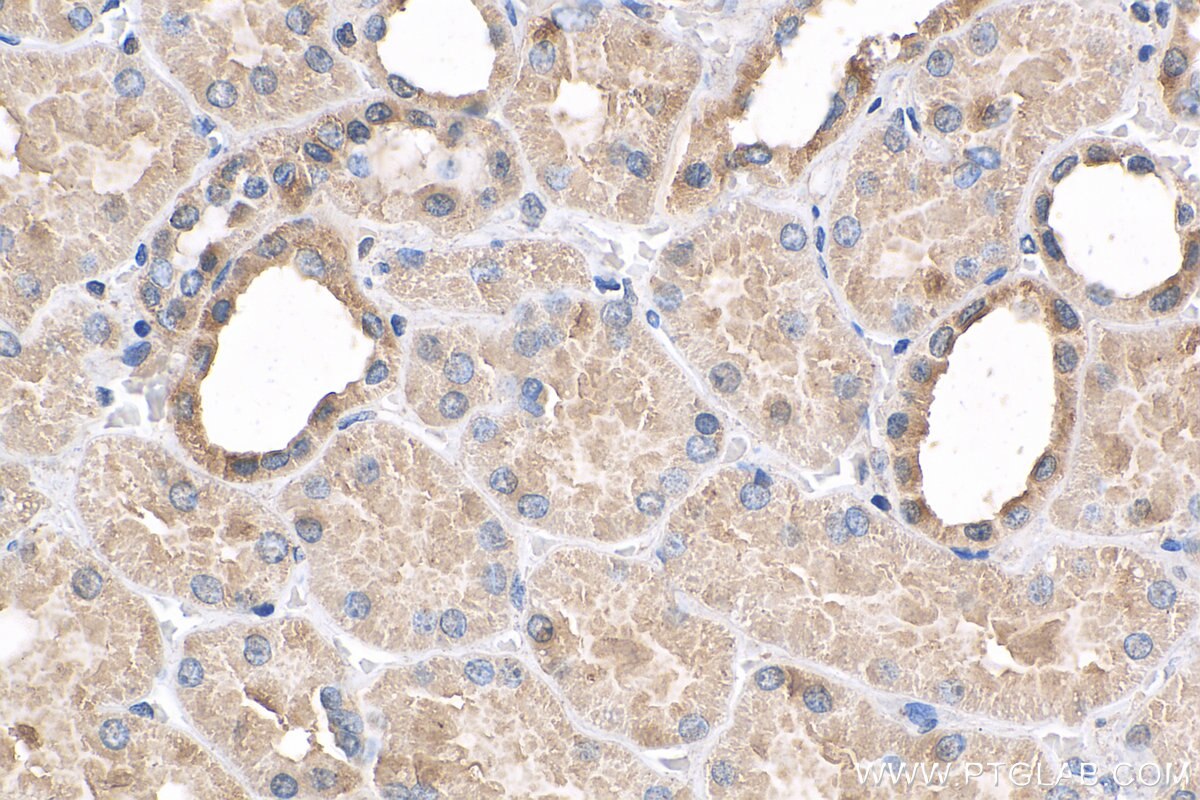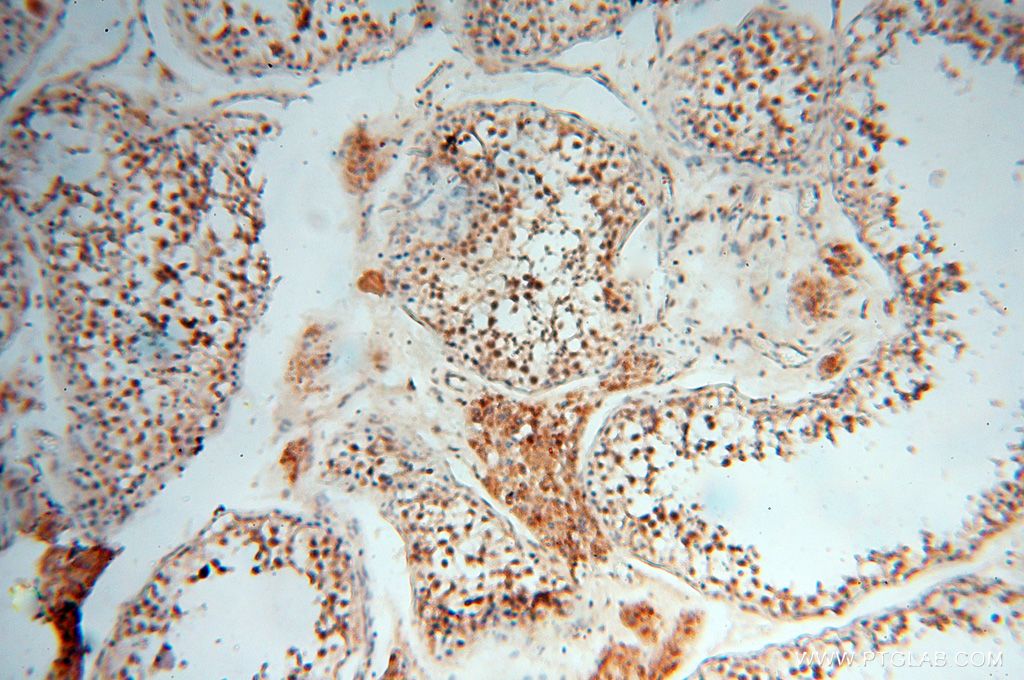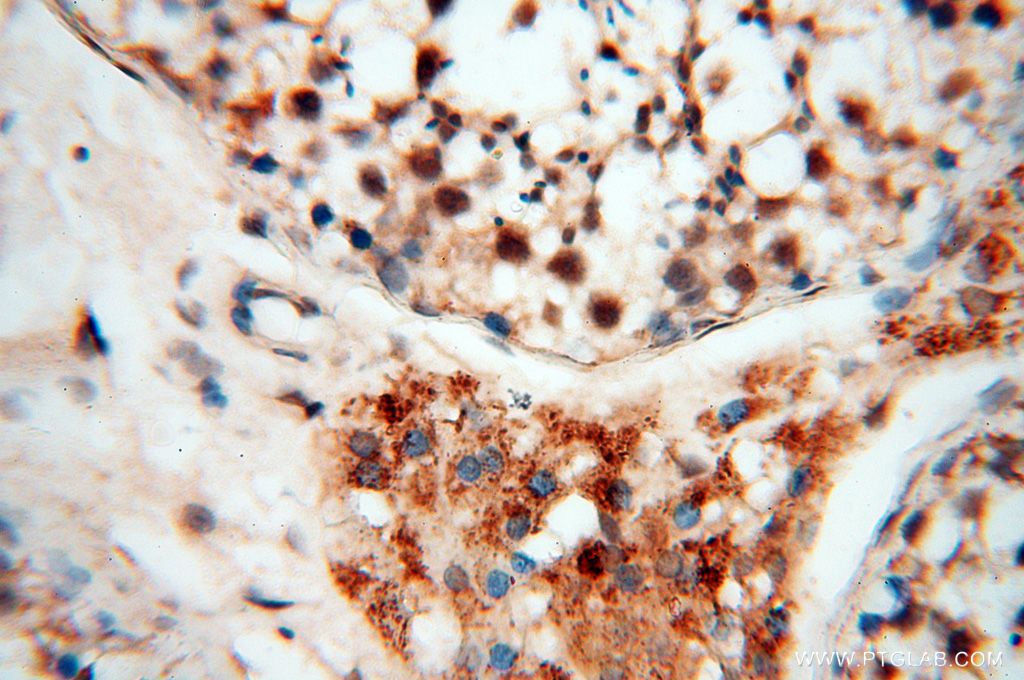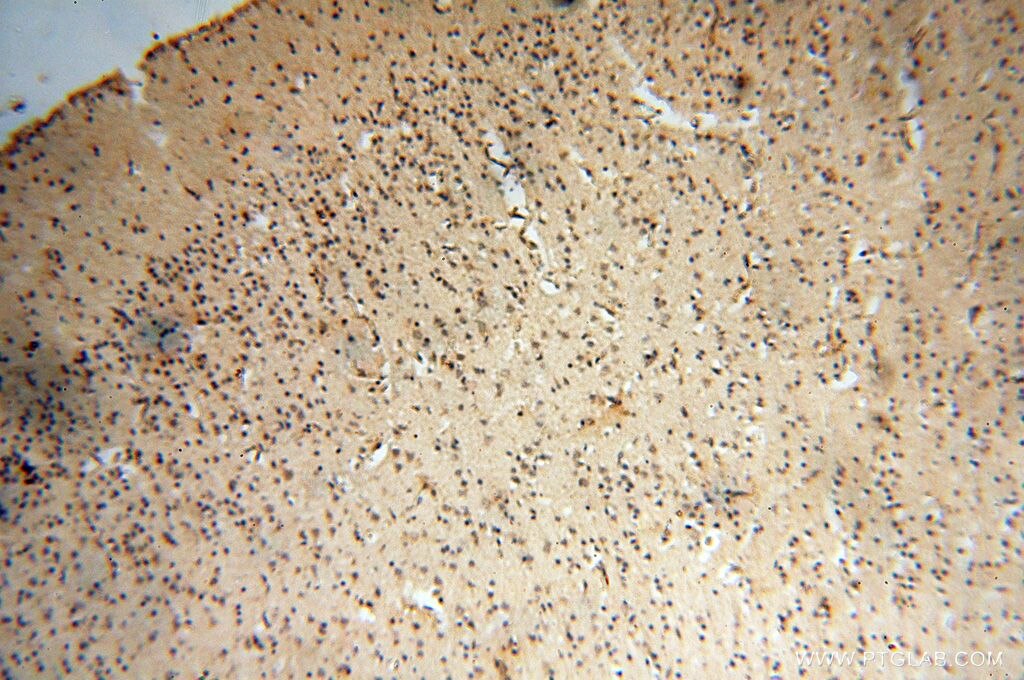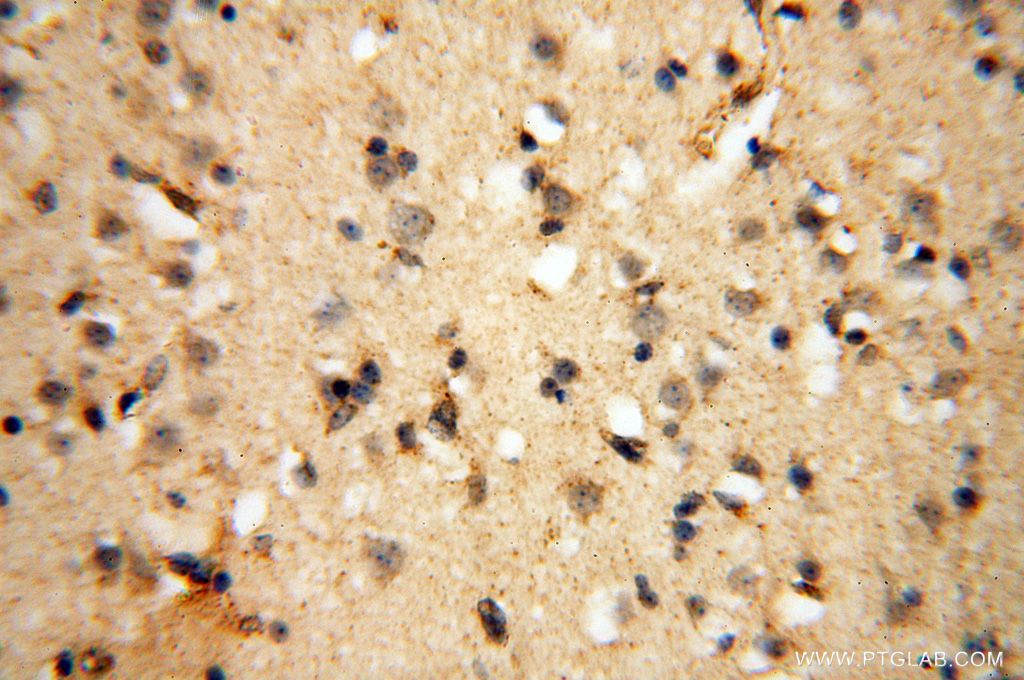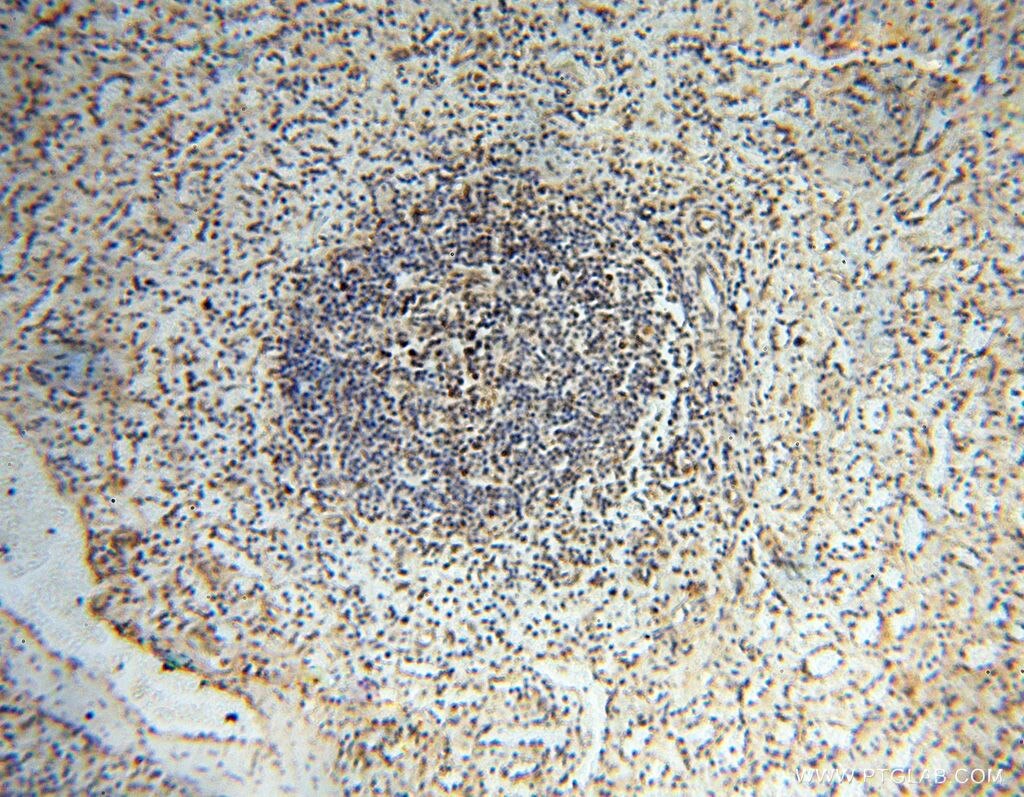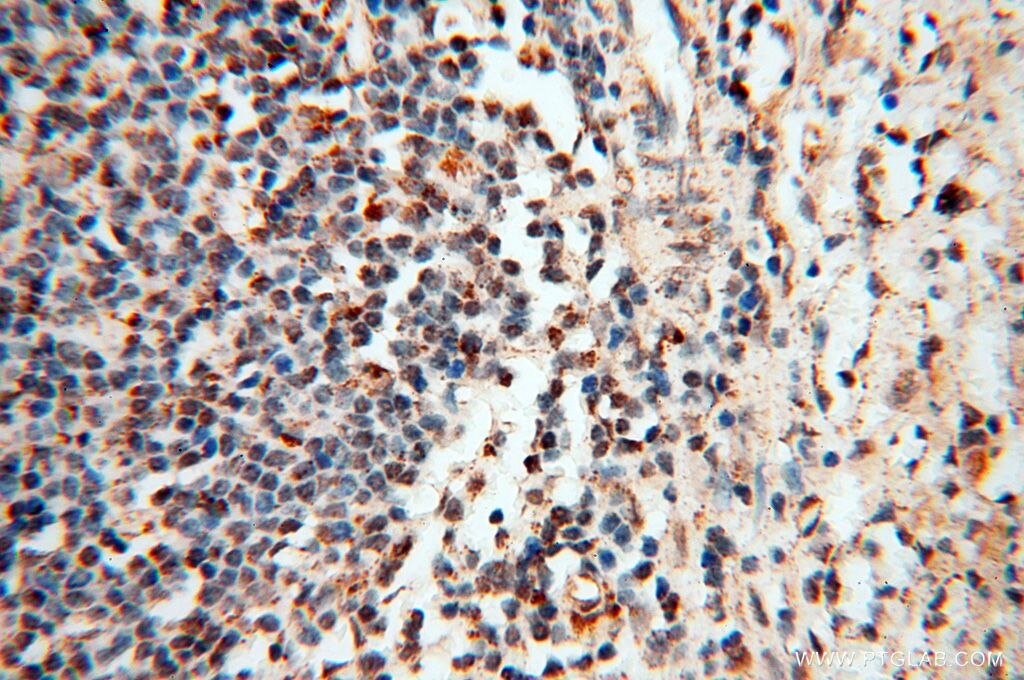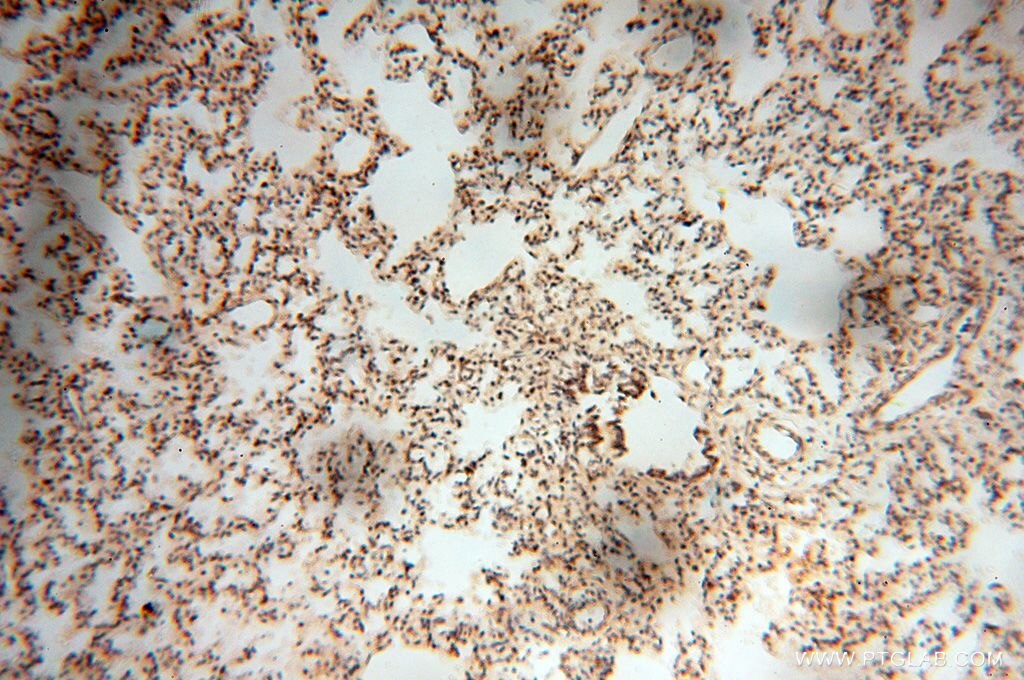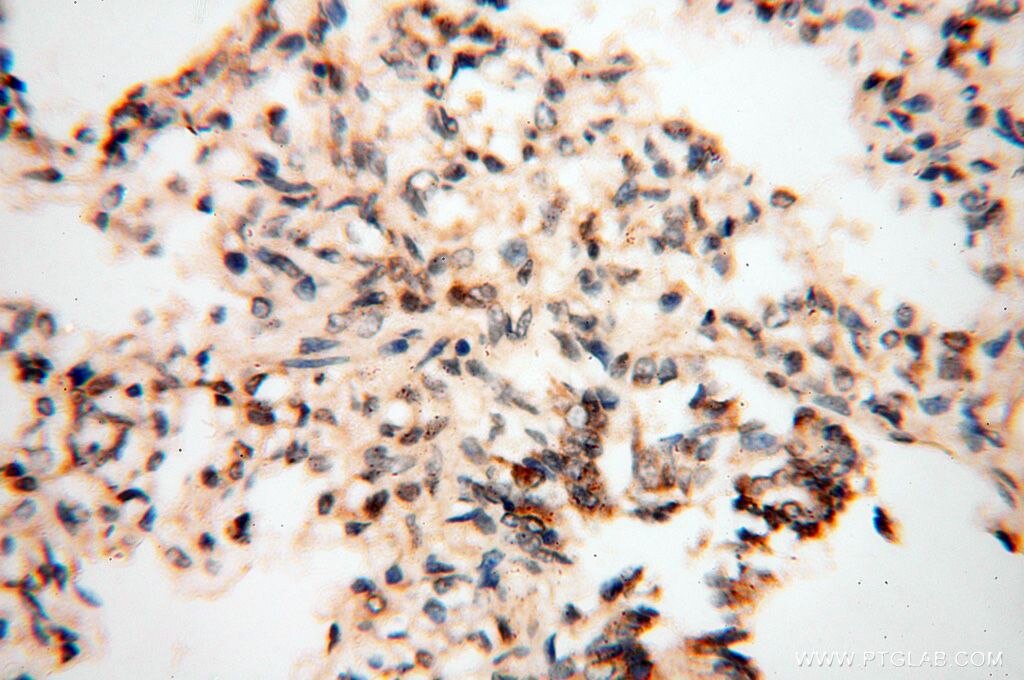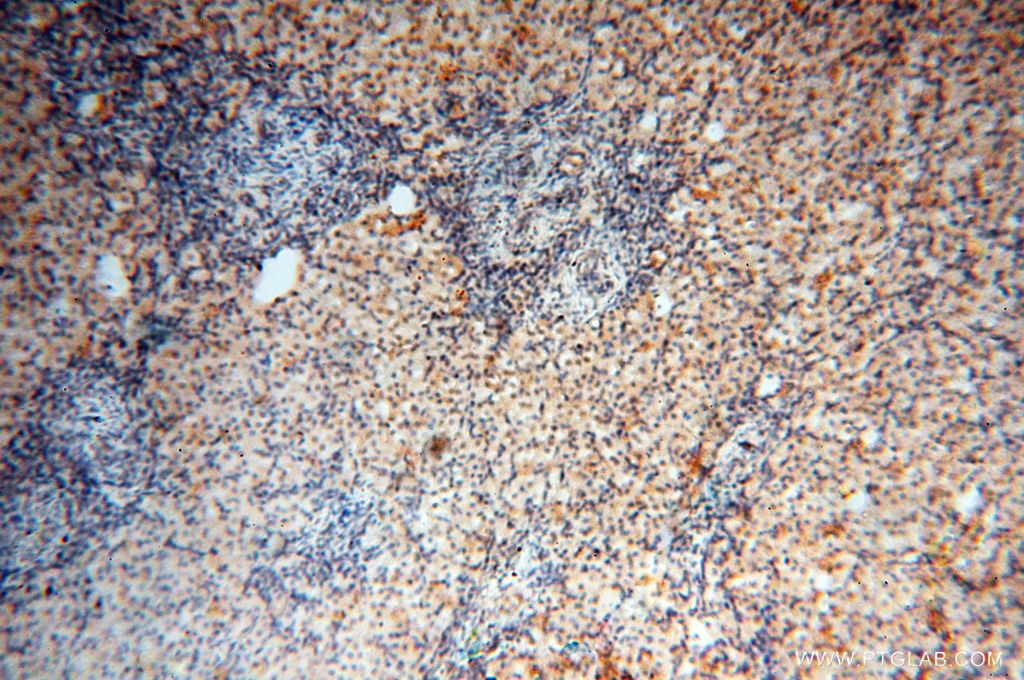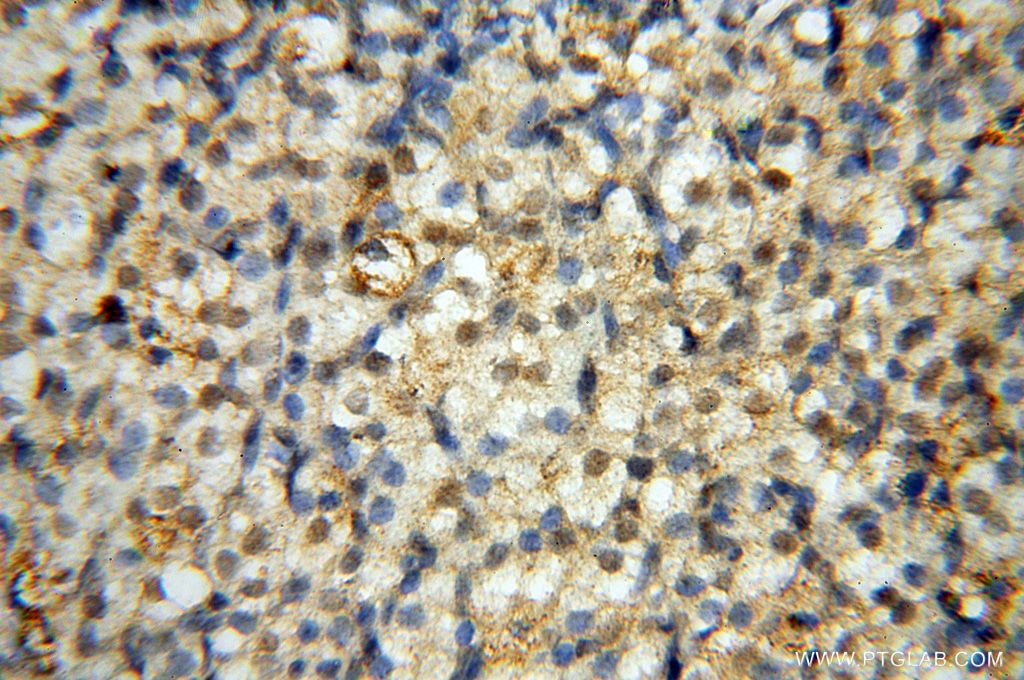Tested Applications
| Positive WB detected in | mouse brain tissue, HeLa cells, HepG2 cells |
| Positive IP detected in | HeLa cells |
| Positive IHC detected in | human kidney tissue, human testis tissue, human brain tissue, human spleen tissue, human lung tissue, human ovary tissue Note: suggested antigen retrieval with TE buffer pH 9.0; (*) Alternatively, antigen retrieval may be performed with citrate buffer pH 6.0 |
Recommended dilution
| Application | Dilution |
|---|---|
| Western Blot (WB) | WB : 1:500-1:1000 |
| Immunoprecipitation (IP) | IP : 0.5-4.0 ug for 1.0-3.0 mg of total protein lysate |
| Immunohistochemistry (IHC) | IHC : 1:50-1:500 |
| It is recommended that this reagent should be titrated in each testing system to obtain optimal results. | |
| Sample-dependent, Check data in validation data gallery. | |
Published Applications
| KD/KO | See 8 publications below |
| WB | See 16 publications below |
| IHC | See 7 publications below |
| IF | See 3 publications below |
| IP | See 4 publications below |
Product Information
17491-1-AP targets USP20 in WB, IHC, IF, IP, ELISA applications and shows reactivity with human, mouse, rat samples.
| Tested Reactivity | human, mouse, rat |
| Cited Reactivity | human, mouse, rat |
| Host / Isotype | Rabbit / IgG |
| Class | Polyclonal |
| Type | Antibody |
| Immunogen |
CatNo: Ag11590 Product name: Recombinant human USP20 protein Source: e coli.-derived, PGEX-4T Tag: GST Domain: 1-351 aa of BC039593 Sequence: MGDSRDLCPHLDSIGEVTKEDLLLKSKGTCQSCGVTGPNLWACLQVACPYVGCGESFADHSTIHAQAKKHNLTVNLTTFRLWCYACEKEVFLEQRLAAPLLGSSSKFSEQDSPPPSHPLKAVPIAVADEGESESEDDDLKPRGLTGMKNLGNSCYMNAALQALSNCPPLTQFFLECGGLVRTDKKPALCKSYQKLVSEVWHKKRPSYVVPTSLSHGIKLVNPMFRGYAQQDTQEFLRCLMDQLHEELKEPVVATVALTEARDSDSSDTDEKREGDRSPSEDEFLSCDSSSDRGEGDGQGRGGGSSQAETELLIPDEAGRAISEKERMKDRKFSWGQQRTNSEQVDEDADVD Predict reactive species |
| Full Name | ubiquitin specific peptidase 20 |
| Calculated Molecular Weight | 914 aa, 102 kDa |
| Observed Molecular Weight | 110-120 kDa |
| GenBank Accession Number | BC039593 |
| Gene Symbol | USP20 |
| Gene ID (NCBI) | 10868 |
| RRID | AB_2212570 |
| Conjugate | Unconjugated |
| Form | Liquid |
| Purification Method | Antigen affinity purification |
| UNIPROT ID | Q9Y2K6 |
| Storage Buffer | PBS with 0.02% sodium azide and 50% glycerol, pH 7.3. |
| Storage Conditions | Store at -20°C. Stable for one year after shipment. Aliquoting is unnecessary for -20oC storage. 20ul sizes contain 0.1% BSA. |
Background Information
USP20(ubiquitin carboxyl-terminal hydrolase 20) is also named as KIAA1003, LSFR3A, VDU2 and belongs to the peptidase C19 family and the USP20/USP33 subfamily. It can specifically deubiquitinate and stabilize HIF1A and, therefore, increase expression of HIF-1alpha targeted genes, such as vascular endothelial growth factor (VEGF). It also plays a central role in ADRB2 recycling and resensitization after prolonged agonist stimulation by constitutively binding ADRB2, mediating deubiquitination of ADRB2 and inhibiting lysosomal trafficking of ADRB2.
Protocols
| Product Specific Protocols | |
|---|---|
| IHC protocol for USP20 antibody 17491-1-AP | Download protocol |
| IP protocol for USP20 antibody 17491-1-AP | Download protocol |
| WB protocol for USP20 antibody 17491-1-AP | Download protocol |
| Standard Protocols | |
|---|---|
| Click here to view our Standard Protocols |
Publications
| Species | Application | Title |
|---|---|---|
Genes Dev Deubiquitinase USP20 promotes breast cancer metastasis by stabilizing SNAI2.
| ||
J Cell Biol Deubiquitinases USP20/33 promote the biogenesis of tail-anchored membrane proteins. | ||
Cell Death Differ USP20 positively regulates tumorigenesis and chemoresistance through β-catenin stabilization.
| ||
Diabetes Hepatokine ERAP1 Disturbs Skeletal Muscle Insulin Sensitivity via Inhibiting USP33-Mediated ADRB2 Deubiquitination. | ||
Front Oncol USP20 is a predictor of poor prognosis in colorectal cancer and associated with lymph node metastasis, immune infiltration and chemotherapy resistance
| ||
Mol Ther Oncolytics USP18 and USP20 restrict oHSV-1 replication in resistant human oral squamous carcinoma cell line SCC9 and affect the viability of SCC9 cells.
|

